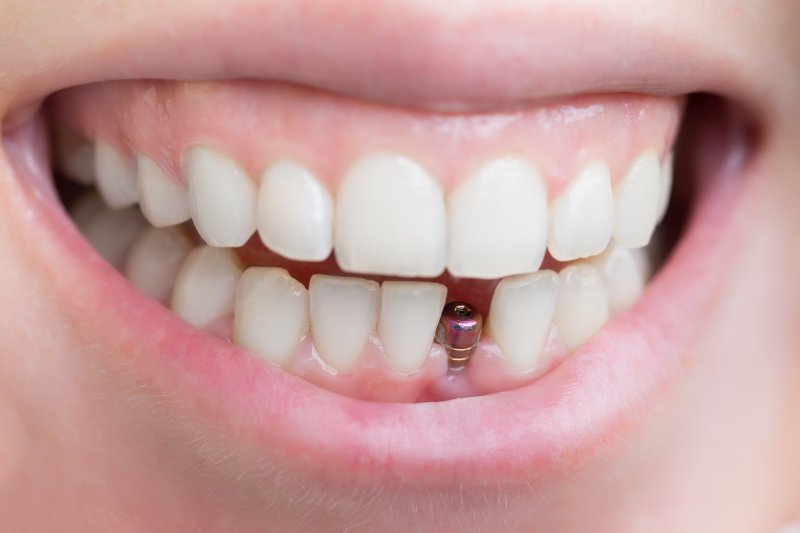
Excellent oral hygiene is the best way to ensure your dental implants last for as long as possible, but the materials your devices are made of will also play an important role in determining their lifespan. Since every implant is completely customized to fit the patient, one person’s prosthetic devices may be made from different materials than those of another. Here’s a brief guide to what you should know about how the way your implants were constructed can help determine their life expectancy.
What Are Dental Implants Made Of?
Each implant is individually crafted from high-quality materials to ensure that it functions well for as long as possible. An implant consists of a post surgically placed in the jawbone and an abutment piece anchored on top of it, and these can be made from titanium or zirconia. These devices support lifelike dental restorations made from ceramic materials or resin, and they can restore almost all the patient’s original chewing power. Depending on a range of factors, implants can last for decades if they receive excellent care.
Titanium Vs. Zirconia
Dental implant posts and abutments can be made from titanium and zirconia, and either of these materials offers benefits the other does not. Here’s a quick guide to how they differ:
- Titanium is highly biocompatible and incredibly strong, and it is quite resistant to corrosion. One of the most significant benefits of this material is that it has the remarkable ability to fuse with the patient’s bone structure through the natural process of osseointegration, creating a sturdy foundation that can maximize the device’s lifespan.
- Zirconia is biocompatible and resembles natural tooth structure, and it is more resistant to corrosion than titanium. While it does not fuse with the patient’s jawbone, it provides a strong base for the restoration and can be an ideal solution for patients with metal sensitivities or who prefer its appearance. Implants made from zirconia may not last as long as those made from titanium.
Porcelain Vs. Acrylic
Dental implants support lifelike dental restorations made from porcelain or acrylic. Here’s what you should know about these materials:
- Porcelain is quite durable and remarkably similar to natural enamel. This material can endure a lot of pressure, but it may chip or crack if stressed too much.
- Acrylic is lightweight and gentler on the remaining natural teeth, but it is less durable than ceramic materials like porcelain. It may be necessary to replace or adjust restorations crafted from acrylic more frequently.
Knowing about the materials used to manufacture your implants can help you understand how to take excellent care of them. During your consultation, your implant dentist will be happy to answer any questions about maintaining your appliance and how long it can last.
About the Author
Dr. Dana C. Jones earned his dental degree at the University of Buffalo School of Dental Medicine and has participated in many postgraduate courses and seminars to develop his skills further. He is proud to be a member of the American Dental Association, the American Academy of Cosmetic Dentistry, and the Academy of General Dentistry. His office in Ridgefield offers general, restorative, cosmetic, and emergency dentistry as well as dental implants. To book your consultation for implants, contact his office online or dial (203) 438-8919.

